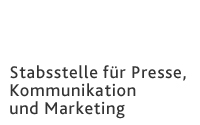Executive Department for
Press, Communication and Marketing
Adolf-Reichwein-Straße 2a Gebäude AVZ (Gebäudeteil AR-NA) 57068 Siegen
Phone: +49 (0)271/740-4915 Fax.: +49 (0)271/740-4911 E-Mail: presse@uni-siegen.de
Digital Technologies and Death
Researchers at the University of Siegen are exploring digital technologies to support the dying and bereaved.
Conversations about death are not popular. “But avoiding the topic takes away your chance to plan for your own end of life, or to shape the time after death,” says Ruben Albers, who is researching Human Computer Interaction at the University of Siegen in a team lead by Dr. Marc Hassenzahl. He firmly believes that technology will increasingly shape how we experience of death. “We already see trends in this direction, such as the presence of the deceased in virtual spaces and the growing importance of digital legacies,” Albers says.
Albers’ work is a part of the e-ViTA research project, a collaboration between Europe and Japan that is focused on technology in the domestic context of an aging society. His primary interest are pro-active approaches to positive experiences with aging. Technology already plays an important role in many parts of our lives — whether in health, communication, or work. Interestingly, death and dying are often ingored in this context. Yet, several trends point towards an increasingly important role of technology. On social networks, friends of the deceased now often leave tributes on the departed’s profile pages, including photos, comments, and memories. As a result, technology offers a chance to remember deceased or even to ‘interact’ with them through chat messages.
Digital technology and automation have the potential to significantly change how we experience death and the practices that accompany it — both for the dying and the bereaved. Albers knows that: “the dying could use technology to prepare for death, for example by digitally recording and saving their life story. This retrospection allows the dying person to reflect on their own life while also leaving a legacy.”
Naturally, the time after one's own death cannot be personally experienced — and yet many dying people have hopes and wishes for the future of their family members and their own legacies. Perhaps they'd like to continue helping the people they are leaving behind, to be there for them or at least remain in positive memory. To this end, researchers in Siegen worked with older adults to explore a fictitious scenario in w which they create a kind of digital time capsule with items and memories they want to save for their descendants.
Digital technologies can also change how we mourn and accompany grief. Whereas ‘letting go’ of the deceased was once seen as an important step in grieving, today the focus tends to be more on accepting loss on the one hand while also creating a new place for the deceased in one's own life. Chatbots could potentially play a role in this: As interactive technologies with a dialog function, they can be designed to resemble living beings. Bots and conversational agents could potentially represent the deceased person — or act in the role of a close friend talking about the deceased and helping shape thoughts, Albers explains. “The approach you take will depend on which experiences you’d like to create.”
This much is clear: There are numerous ethical, social, and technical issues at stake here. Thanato-Technologies — that's what such technologies are called— require extra sensitivity in their design. They can be frightening, but they also have the potential to change how we remember, grieve, and die. Bots can even promise some form of immortality. Albers: “My research will show what is and isn’t appropriate in this context.”
Contact:
Ruben Albers
Tel. +49 0271 740 - 5241
Email: ruben.albers@uni-siegen.de


